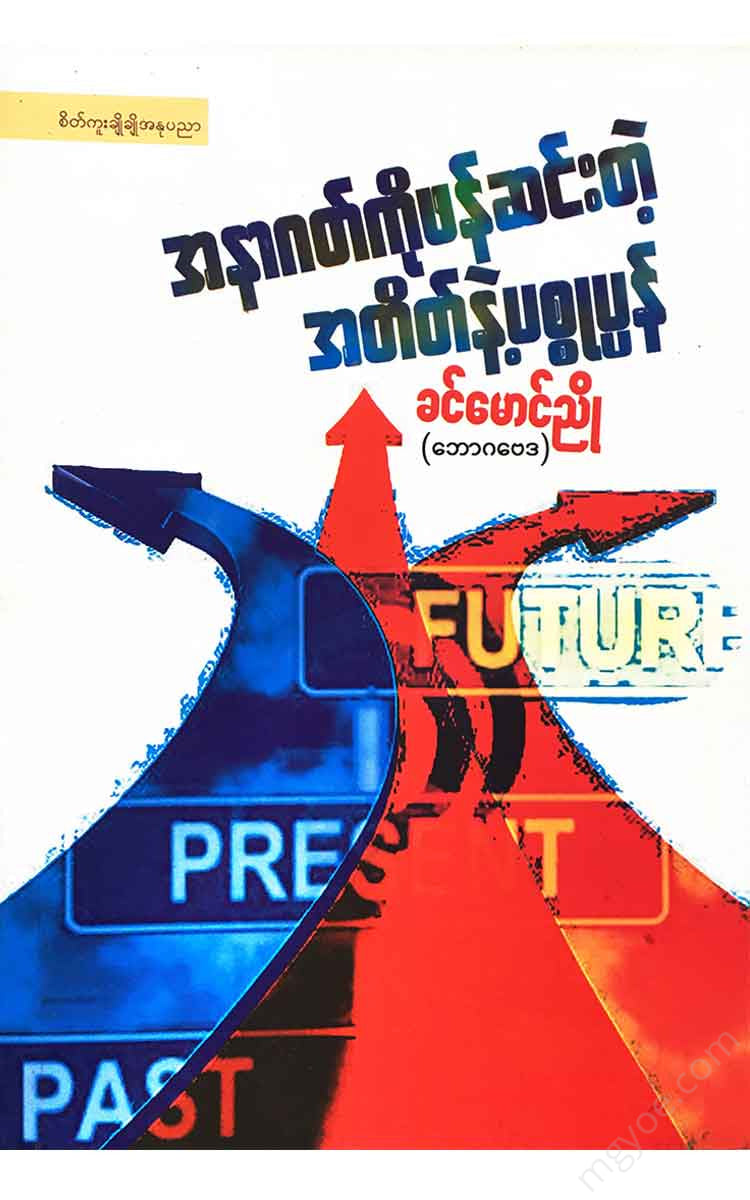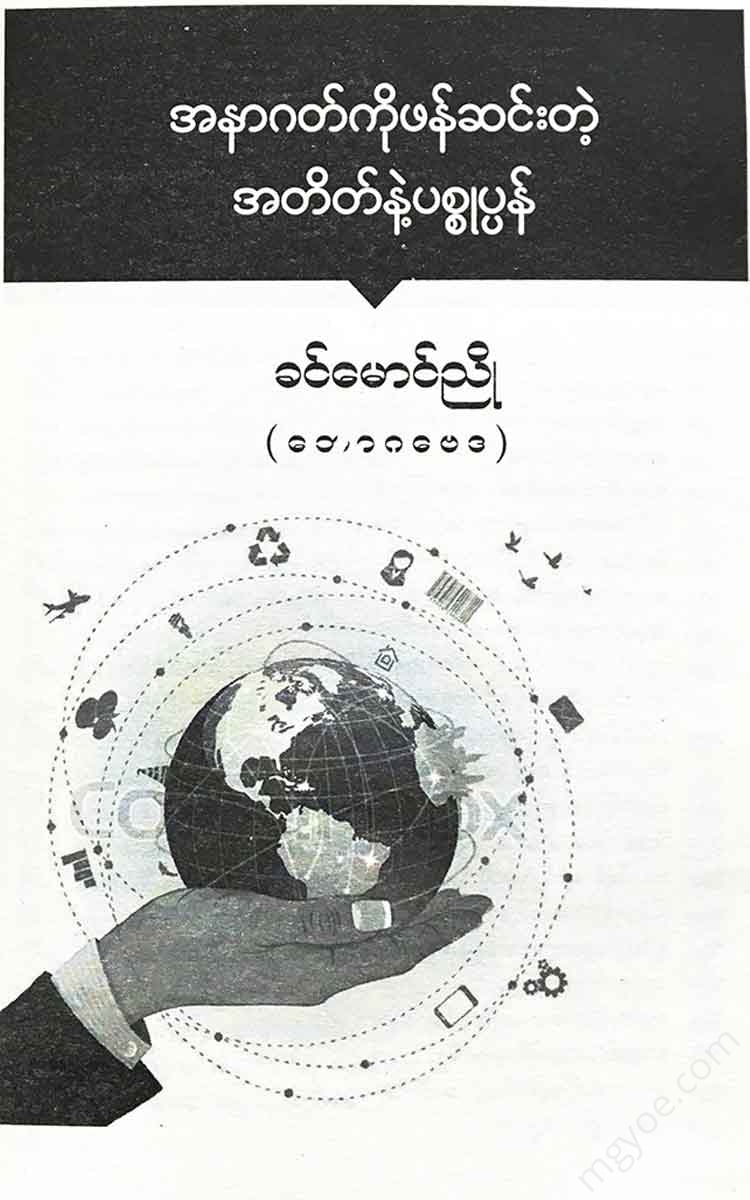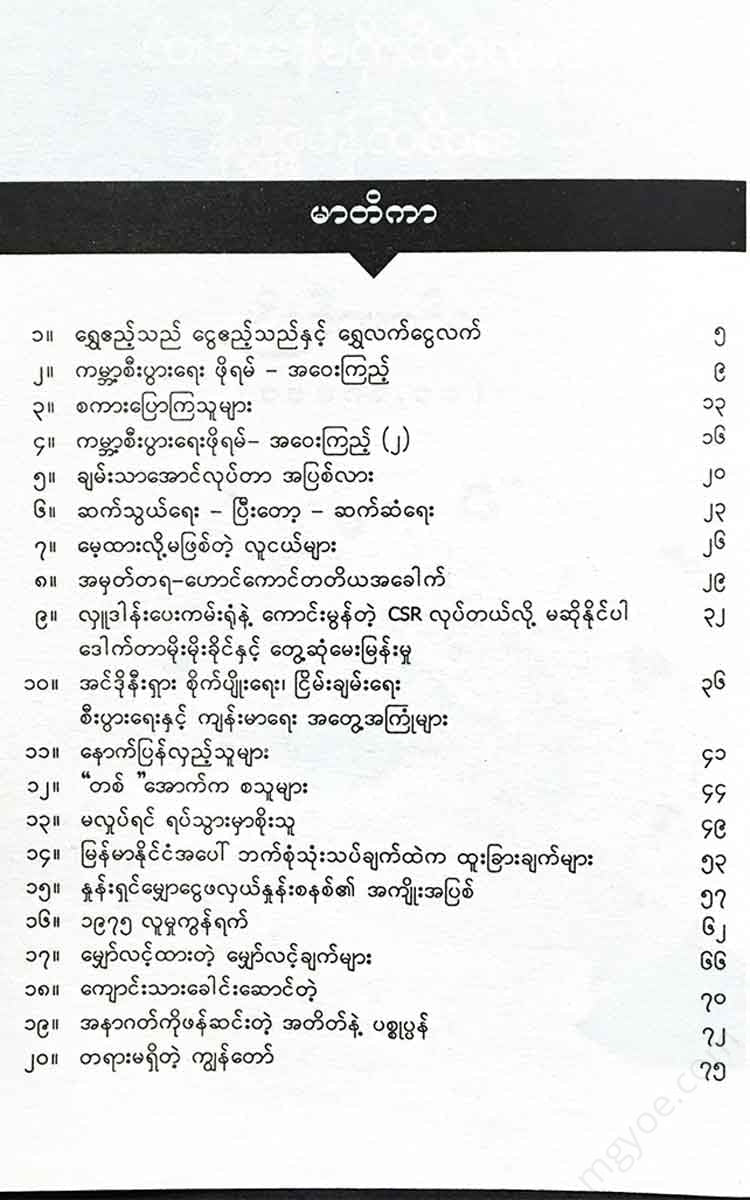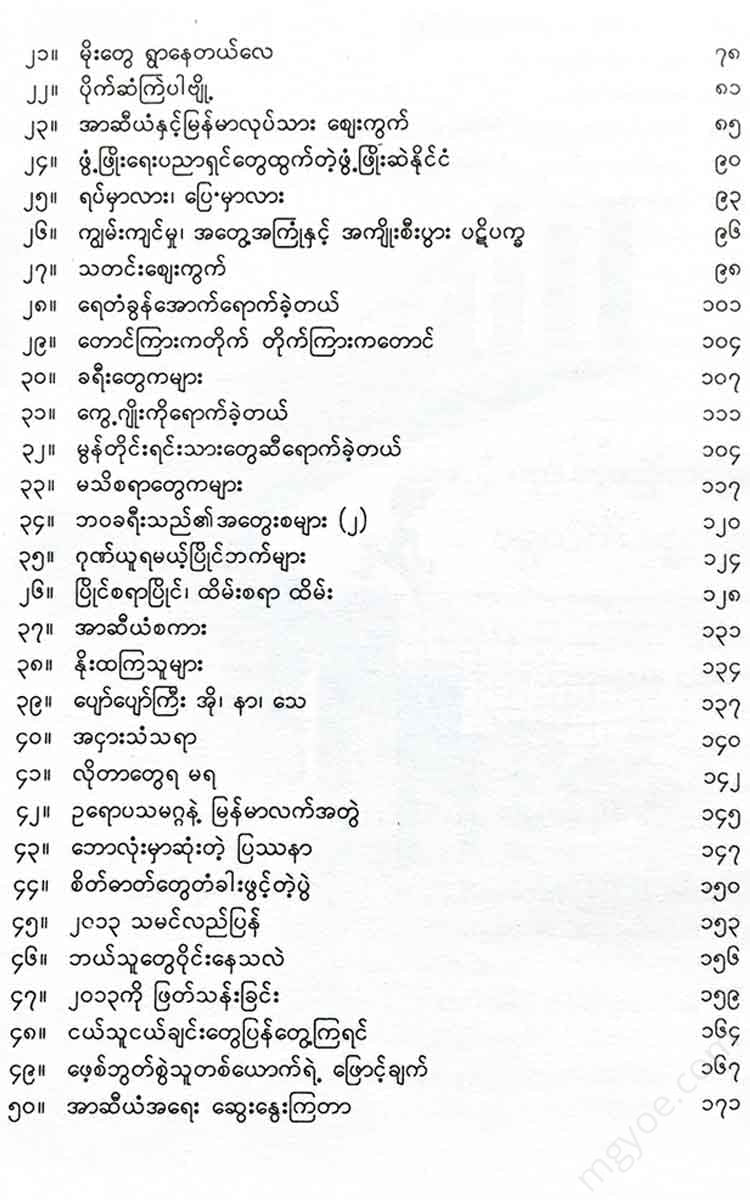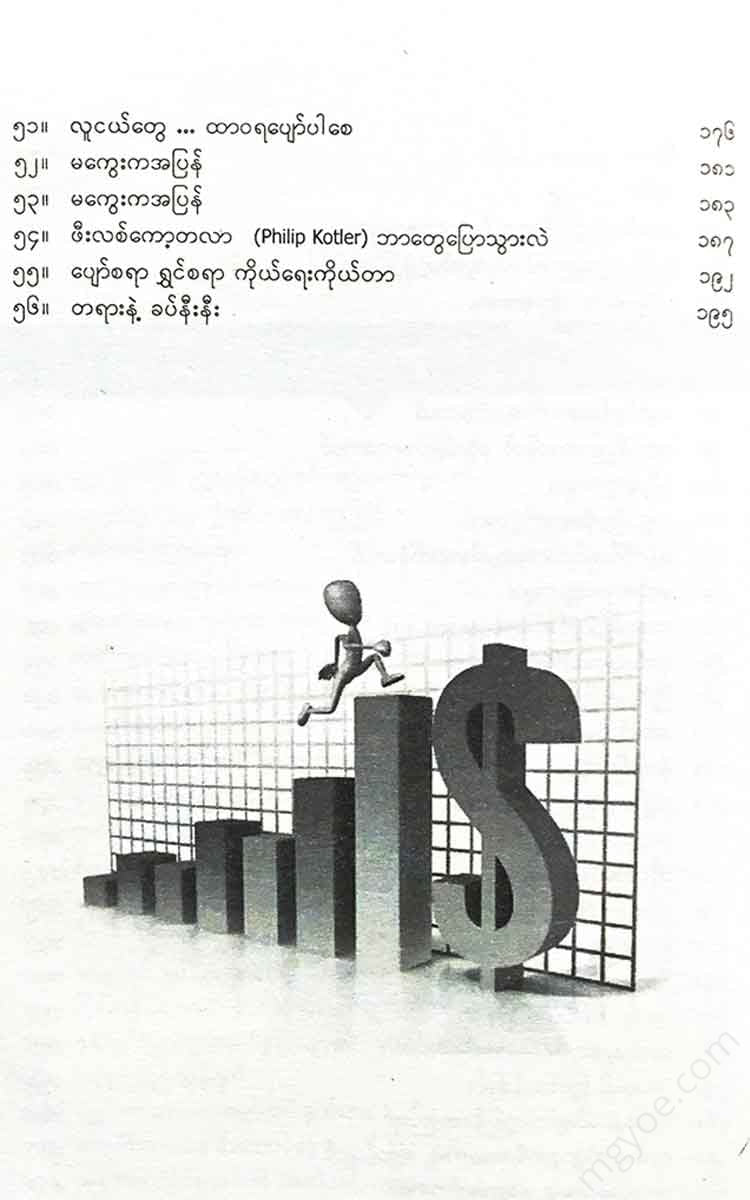စိတ်ကူးချိုချိုစာပေ
Khin Maung Nyo (Economics) - The past and present that create the future
Khin Maung Nyo (Economics) - The past and present that create the future
Couldn't load pickup availability
Golden guests and silver guests
Golden hand, silver hand
I think they've been talking about foreign investment for over a year now.
If we think about it from the basics, it is true that both domestic and foreign investment are low and need to be increased.
There are generally two views on foreign investment.
The first view emphasizes the negative effects and harms that foreign investment will cause, while the second view emphasizes the positive effects and benefits that foreign investment will bring.
In fact, I don't think I need to say much about the fact that foreign investment has both positive and negative effects, and that wisdom, laws, and regulations are needed to minimize the positive and negative effects.
The fear of negative consequences and harms due to foreign investment is based on the negative consequences and harms that have been experienced and experienced by investors in the past because environmental and social impacts were not taken into account in business projects. Now, investors themselves are becoming more cautious. In the past, when they did not invite or did not come when invited, they thought that the situation had changed and that they had to blindly choose who came.
Among these, there are also concerns about harming your own business, your own business group, rather than harming others. It is right to worry about harming your own business, but this is not the era of self-isolation that has been practiced for years. We have done something with our own efforts to a certain extent, but to really progress, we need even greater forces, money, people, and capital. Therefore, some businesses that talk about catching elephants and tigers fall silent when asked how much capital they have, how much experience they have, and how much technology they have. To continue to progress, we cannot just give a voice.
We must also set standards to ensure that workers are not harmed and that quality products are not produced. In other words, we must take care of our own business, our own work, and our own interests. We must protect ourselves.
The second group wants foreign investment to come in, especially because investment is low, and because we cannot do it with our own domestic strength. We have seen in the past that foreign investment is low, and that investment is limited to a few areas and not widely spread for the common good.
What I want is to see my son carrying a pot of gold.
These are our considerations. Foreign investors also consider the pros and cons, the benefits and harms. Can I say they think even more than us? We can expect them to think about their own interests because they are also in business. The choice is whether to enter early or wait a while and see if there is room for themselves if they enter with less difficulty. We understand that they are not thinking about whether to invest or not, but rather making a choice about time and space.
On the morning of May 4th, a friend sent me a news article that linked foreign investment to the World Economic Forum. I have seen this sentiment in previous discussions I have attended, listened to, read, and translated. Entrepreneurs and investors have come out in droves. I have seen for myself what is needed. As far as I can tell, it has not arrived yet.
Looking back at all the investments made in a year, we found that manufacturing accounted for $40 million, electricity for $364 million, oil and gas for $309 million, hotels and tourism for $300 million, minerals for $15 million, agriculture for $10 million, and livestock and fisheries for $6 million.
Many companies sent delegations, explored opportunities, opened branches, and some even entered into joint ventures. The total investment was about $1400 million. By comparison, it is the same as the foreign investment received by Laos in the calendar year 2012, which is only one-tenth of the population of Myanmar.
The reasons are the remnants of the economic sanctions imposed for many years, inadequate infrastructure (roads and transportation), insufficient power, high land prices, a shortage of skilled labor, manipulation by some nearby large companies, corruption, unclear laws and regulations, and insufficient capacity in departments, which have led to unrealistic expectations.
Looking at the countries that invested, Singapore received (410 million), followed by Vietnam and China, Japan (54 million), and the United States was not even listed last year.
The largest investment is a Vietnamese company's construction of a building that combines offices, shopping malls, and housing, while Thailand has completed the first phase of a gas-fired power plant.
It is still difficult to transfer money to do business, and credit cards are not widely used. When it comes to finding the right employees, it is difficult to find even workers with basic office skills in English.
Even so, they don't have the specialized skills and abilities needed for business. So I guess some businesses are saying that they will have to bring in their own people.
Vietnam opened up to American investment in the 1990s. They looked for investment opportunities. But it took years for the real investment to come. So don't be discouraged if you don't see immediate investment, and encourage Myanmar. Such a big country, in other words, a market, a market where Americans haven't set foot, is the only one in the world. So sooner or later, you can't help but come to Myanmar.
This is a time when foreign investors, both gold and silver, are choosing the right time to come to Myanmar. This is not the time to say no to them. We will welcome them with open arms.
